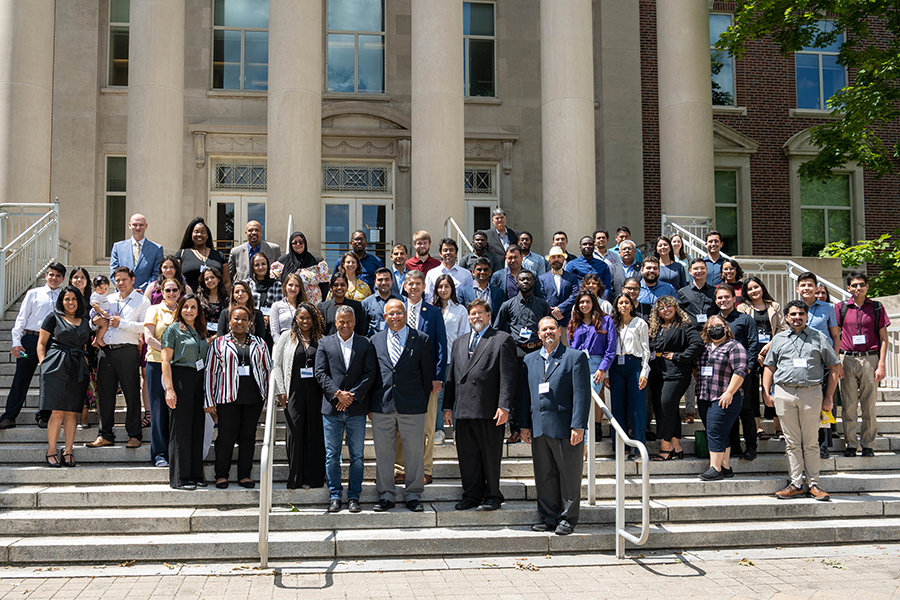Addressing climate change and coastal resilience is the focus of summer institute in Puerto Rico

According to the Climate Reality Project, founded by former U.S. Vice President Al Gore, to solve the global climate crisis it will take a diverse, inclusive, equitable and just approach where all voices are heard. The only path forward — for our families, our democracies and our planet — has to be to accelerate the just transition to clean energy already underway across the globe.
Luciano Castillo, the Kenninger Professor of Renewable Energy and Power Systems in Mechanical Engineering at Purdue University, is the principal investigator for Blue Integrated Partnerships (BIP), a consortium of minority-serving institutions who are working to grow the number of underrepresented minority researchers in STEM fields.
BIP’s aim is to recruit underrepresented minority students to participate in research projects and workshops at Purdue and other institutions, with the goal of preparing them for the next step in their academic careers.
One way to address the need is through the Summer Institute for Climate Change & Coastal Resilience, a STEM and social science research project, that will bring together high school students, Purdue undergraduate and graduate students and K-12 teachers to conduct research in Puerto Rico with leading faculty from Purdue and the University of Puerto Rico.
The summer program at the University of Puerto Rico will have an online component June 19-30, followed by four weeks on the Puerto Rico campus July 1-Aug. 4, providing a strong network of mentorship and personal support and the chance for students to personally interact with leaders from industry, academia, military and other STEM fields.
Participants can earn a certificate, acquire new career skills and have unique networking opportunities with the Office of Naval Research (ONR), NASA, Historically Black Colleges and Universities (HBCUs), Hispanic-Serving Institutions, industries and Purdue University faculty. ONR, NASA and the National Science Foundation (NSF) have provided funding for the program.
It is focused on diversity and creating opportunities for those who will be the STEM leaders of tomorrow. Need-based fellowship stipends are available.
“We want programs like this to become super pipelines,” Castillo said. “K-12 students will learn what it takes to attend a STEM school like Purdue. Undergraduate students at minority-serving institutions learn how to conduct world-class research. Graduate students learn what it takes to become a transformational scientist and leader. This is how we change the story and bring true diversity to academia, which in turn will change the world.”
Studies show that underrepresented minority students are just as likely as their white peers to enter STEM fields, but that there are significant gaps in the persistence rate of minority students completing these fields.
“We call this a quiet crisis,” Castillo said. “It’s not just a matter of trying to raise numbers. Minority students feel that they don’t have the tools to succeed in science and engineering careers. We want to give these students every available opportunity to overcome those barriers, to solve the big problems of tomorrow.”
